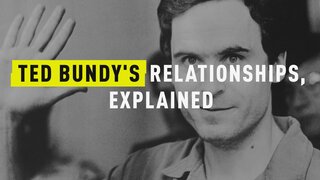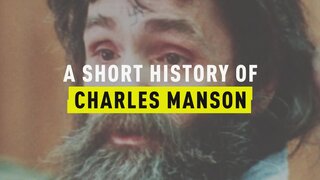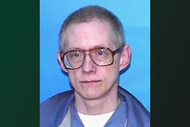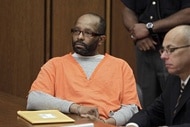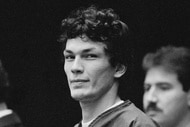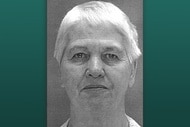Create a free profile to get unlimited access to exclusive videos, breaking news, sweepstakes, and more!
Did Ted Bundy Ever Confess To His Murders? 'The Truth Is Terrible'
Ted Bundy was only focused on his own survival, right up until the very end in January 1989.
For serial killer Ted Bundy, most of the things he did in life were calculated and self-serving. That includes when he chose to confess to his horrifying murders.
“Conversations with A Killer: The Ted Bundy Tapes,” a new Netflix docu-series which features never-before-heard interviews from death row conversations recorded by journalists Stephen Michaud and Hugh Aynesworth in 1980, reveals how long it took for Bundy to confess to his crimes.
Of course, Bundy only did it when it was convenient for him.
Michaud said Bundy never confessed to him, despite hours and hours of taped conversations. Bundy had other objectives. Toward the end of their correspondence, Michaud was admittedly sick of him, and as Michaud told the killer he was going to publish a book about their conversations, Michaud reflected, “He said 'I don’t care what you say, as long as it sells.'”
Up until this point, Bundy still maintained his innocence, as he did throughout his murder trials.
“I was so damn sick of his lies and his denials that he told us,” Aynesworth reflected. “Sometimes we’d come out of that prison and be actually sick. I just was tired of Ted Bundy and what he had taken of my life, really.”
But although Bundy refused to admit to killing dozens of women across the country, he didn’t shy away from talking about murder.
In the late 1980s, the FBI was compiling data on murderers in an attempt to identify patterns of future killers, how they developed their skills, and how they evaded detection. Part of this research included interviewing killers, and that included Bundy.
Bundy proved to be an asset to them — or at least he fed them the information that he wanted to.
FBI Special Agent Bill Hagmaier stated in the docu-series that Bundy, who was on death row at this point, didn’t admit to killing anyone when they began chatting. But, he proved to have valuable insight into the mind of a killer and he was willing to help. Hagmaier said Bundy would keep newspaper clippings around his cell of cases that Hagmaier was working on and he’d assist him in profiling the killers.
“He talked about how a lot of serial killers would return to the crime scene. He also talked about leaving evidence behind that had nothing to do with the crime scene,” Hagmaier said. “He confirmed a lot of things that we suspected about serial killers but he also gave us a lot more things to think about.”
It wasn’t until days before his execution that Bundy decided to confess, during the latter part of January 1989. The sole purpose of it was to “extend his life,” Haigmaier said.
Polly Nelson, Bundy’s post-conviction lawyer, revealed in the new docu-series that ”Ted always thought that his knowledge of these crimes was his ace in the hole but by offering to confess the Governor would delay his execution a few years.”
Bundy, a man who chose when dozens of women would die, thought he could also have power over when he was killed.
“I am the only one in possession of this information, that’s just the way it is,” Bundy explained just days before his execution. “To do a proper job for everybody I’m going to need some time.”
As Ann Rule, a writer who befriended Bundy before he was ever even a murder suspect, wrote in her true crime book “The Stranger Beside Me: The True Crime Story of Ted Bundy,” Bundy didn’t think to confess earlier because he never felt any guilt which would prompt him to do so.
“He had no capacity for guilt,” she wrote. “Only for survival.”
So, technically just hours before he was scheduled to die, Bundy admitted to the murder of 30 women.
"It's late at night like you said, but I think that's a fairly close figure,” he told Hagmaier.
He admitted to killing women in the states of California, Oregon, Washington, Idaho, Utah, Colorado, and Florida between 1973 and 1978. He said about 10 of his victims were actually buried, and admitted to severing the heads of about six of the victims.
He also admitted to necrophilia, having sex with multiple victims long after they died.
“The truth is terrible, it's terrible,” Haigmaier said.
In the end, the confessions didn’t stall his execution. There were no more appeals to make.
Bundy was executed on Jan. 24, 1989. He was 42 years old.
[Photo: Netflix]

